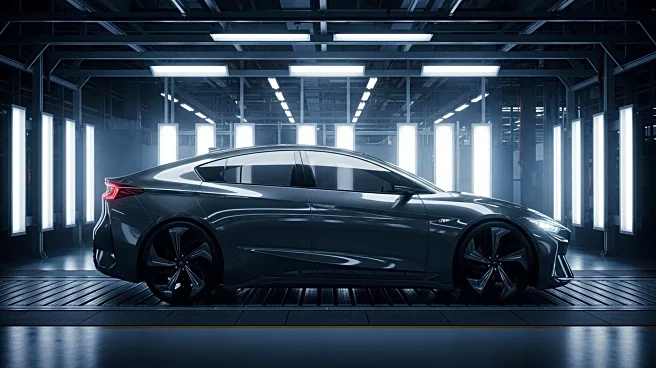What is the story about?
What's Happening?
Volvo Cars is expanding its production capabilities in the United States, specifically at its Ridgeville, South Carolina factory. The company plans to introduce a next-generation hybrid model by 2030, tailored to meet the demands of the US market. This move comes in response to import tariffs affecting profitability, prompting Volvo to strengthen its commitment to local production. The investment underscores Volvo's strategy to adapt to market conditions and enhance its presence in the US automotive sector.
Why It's Important?
Volvo's investment in US production is significant as it addresses challenges posed by import tariffs, which have impacted profitability. By localizing production, Volvo can mitigate tariff effects and potentially reduce costs, making its vehicles more competitive in the US market. The introduction of a new hybrid model aligns with consumer trends towards environmentally friendly vehicles, positioning Volvo to capture a growing segment of eco-conscious buyers. This strategic move may influence other automakers to consider similar investments in local production.
What's Next?
Volvo's plans to produce a new hybrid model by 2030 indicate a long-term commitment to the US market. The company may continue to expand its production capabilities and introduce additional models tailored to local preferences. As Volvo navigates tariff challenges, stakeholders will watch for further strategic decisions that could impact the automotive industry. The success of Volvo's US production efforts may encourage other manufacturers to reassess their strategies in response to trade policies and market demands.
















